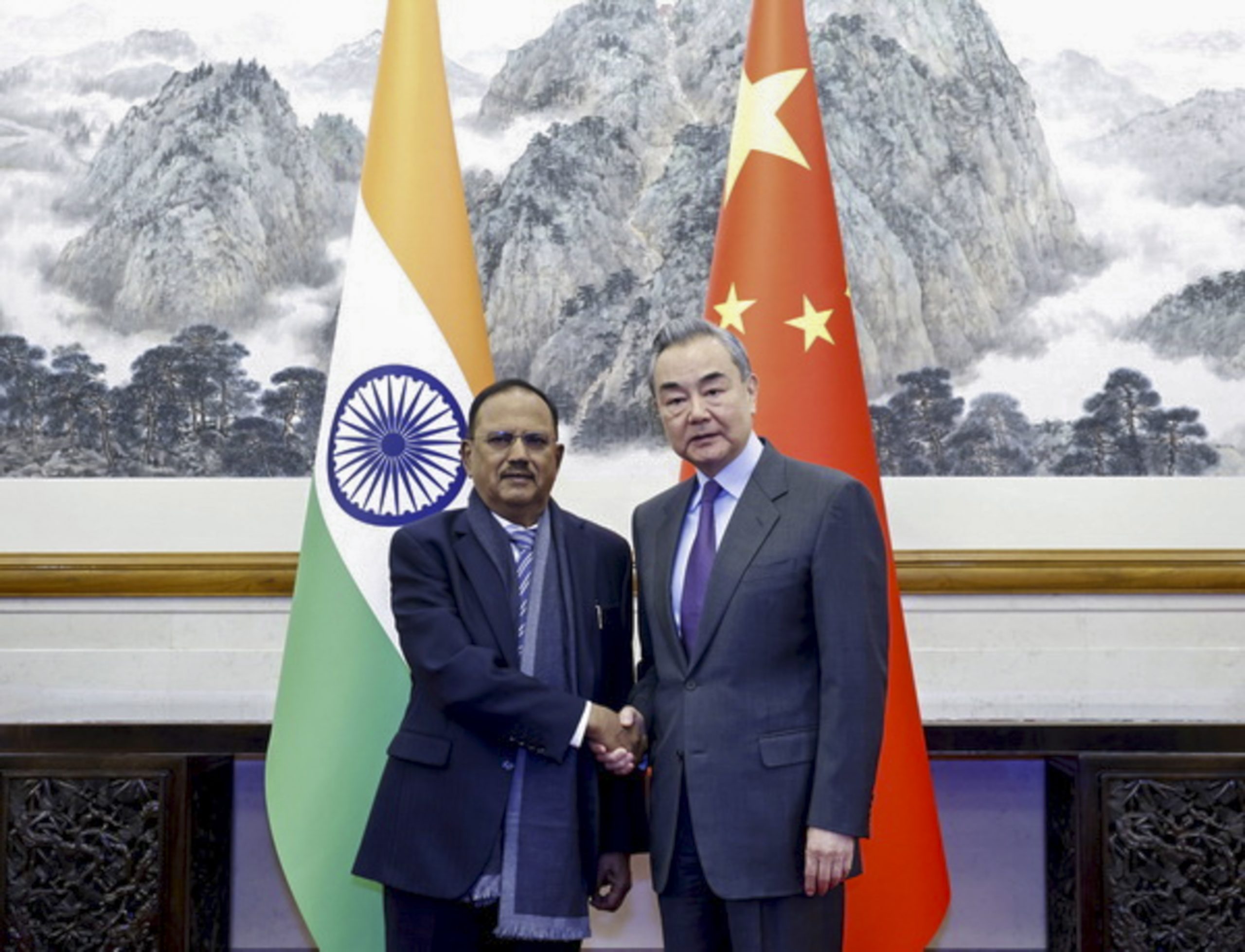BEIJING, Dec 18: During the Special Representatives dialogue on Wednesday, National Security Advisor Ajit Doval and Foreign Minister Wang Yi engaged in “substantive discussions” and reached a six-point agreement. This includes commitments to maintain peace along the borders and foster healthy, stable relations.
Join Daily Excelsior on WhatsApp for the Latest News
In their first meeting after five years, both parties assessed the solutions achieved regarding border issues and emphasized the need for ongoing implementation, as highlighted by a release from the Chinese Foreign Ministry. Both officials mutually agreed that handling the border contextually is crucial to avoid hampering bilateral relations.
They reaffirmed their commitment to maintaining peace and stability in border areas and to advancing cooperative relations.
The two sides expressed their dedication to seeking an equitable and acceptable resolution regarding the boundary issues based on political guidelines established in 2005, indicating a positive approach towards facilitating this process.
Additionally, they evaluated the border situation, agreeing to refine management and control protocols, enhance confidence-building measures, and aim for lasting peace at the border.
They also committed to fostering cross-border collaborations, including the reinstatement of Indian pilgrimages to Tibet, cooperation on cross-border rivers, and enhancing trade at the Nathula border.
Both sides resolved to further strengthen the Special Representatives’ mechanism, enhance diplomatic and military negotiations, and ensure effective follow-up through the Working Mechanism for Consultation and Coordination on China-India Border Affairs (WMCC) regarding decisions made in the recent meeting.
A future round of Special Representatives’ meetings is planned in India next year, with timings to be confirmed through diplomatic channels.
Furthermore, extensive discussions took place on various bilateral, international, and regional matters of mutual interest, stressing the importance of a stable and predictable relationship between China and India for regional and global peace and security, according to the press release.
Following the discussions, Doval met with Chinese Vice President Han Zheng, who remarked on the significant global influence of cooperation between China and India, both ancient civilizations and rising powers.
Leading the Indian delegation, Doval arrived on Tuesday for the 23rd round of Special Representatives talks, marking the first such dialogue in five years; the last occurred in Delhi in 2019.
This structured dialogue comes in the wake of prolonged strained relations following military tensions in Eastern Ladakh, with discussions commencing only after the agreement for disengagement and patrolling was reached on October 21.
Post the agreement, Prime Minister Narendra Modi and Chinese President Xi Jinping reaffirmed their commitment at a meeting in Kazan, Russia during the BRICS summit.
Additionally, External Affairs Minister S Jaishankar and his Chinese counterpart engaged in discussions during the G20 summit in Brazil, further followed by a session of the WMCC.
The military standoff along the LAC in Eastern Ladakh, which began in May 2020 and included a deadly confrontation at Galwan Valley, led to significant diplomatic strain between both nations. Aside from trade, relations stagnated until the disengagement process was completed for the last two points of friction, Demchok and Depsang, under the agreement established on October 21.
This meeting of the Special Representatives holds significant value as the initial structured engagement aimed at mending relations between the two countries.
Established in 2003 to address the complex border dispute spanning 3,488 km, this mechanism has met 22 times over the years. Although it hasn’t resolved all issues, officials consider it an essential and effective tool for managing ongoing tensions between India and China. (Agencies)


Leave a Reply